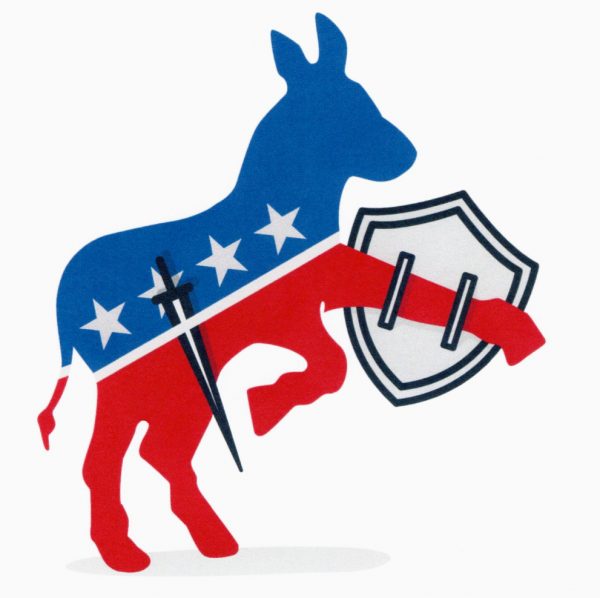OCTOBER 29, 2017
A recent speech by George W. Bush made headlines for its pointed criticisms of Donald Trump, but there was something else he said that I found far more compelling. As soon as he finished his thank-yous and his little jokes, Mr. Bush dived immediately into the heart of the crisis confronting Western democracies today:
“The great democracies face new and serious threats, yet seem to be losing confidence in their own calling and competence. Economic, political and national security challenges proliferate, and they are made worse by the tendency to turn inward. The health of the democratic spirit itself is at issue. And the renewal of that spirit is the urgent task at hand.”
I was hardly a fan of how Mr. Bush sought to renew that spirit as president. But I was impressed with these words. They show an understanding of the grave stakes that challenge the United States and other Western democracies.
The problem is not simply one of Mr. Trump’s coarseness and divisiveness and extremism. The problem, from Brexit to Mr. Trump’s election to the rise of the far-right Alternative for Germany party, is how the liberal order responds to a crisis that threatens its erasure in favor of a reactionary, authoritarian alternative.
Those are pretty high stakes. I’m glad Mr. Bush understands them, but given that he’s retired, not much hinges on whether he grasps them.
Much hangs, however, on whether the Democrats understand them. And if they expect to recapture the White House in 2020 and take the lead in restoring and reforming the postwar democratic framework, they — or, at least, one of them — absolutely must.
I haven’t seen much evidence that the party and its crop of potential presidential candidates are up for it. I was disappointed, for example, that after the far-right rally in Charlottesville, Va., while Democrats duly denounced President Trump’s reaction and the rally’s white supremacism and the right’s defense of Confederate statuary (tough calls!), no one who purports to want to lead the party — and country — out of this darkness stepped forward to offer broader reflections on that grim episode.
Bah! It’s too early for that, some will say. The Democrats are an opposition party right now, and their main job is to oppose. And under the leadership of Senator Charles Schumer and Representative Nancy Pelosi, they’re doing that quite well. But I don’t think Democratic reluctance here is just a matter of timing.
The Democrats are undergoing a historic transformation, from being the party that embraced neoliberalism in the early 1990s to one that is rejecting that centrist posture and moving left. There’s plenty about this to cheer — the neoliberal Democratic Party didn’t do nearly enough to try to arrest growing income inequality, among other shortcomings.
There will be necessary internecine fights, and they boil down to loyalty tests on particular positions demanded by the vanguard. Consider the debate within the party on Senator Bernie Sanders’s “Medicare for All” bill, which most (though not all) 2020 contenders rushed to attach themselves to. To fail to sign on to that legislation is to open oneself to criticism, even abuse, although it’s less a piece of legislation than a goal.
Forget about who’s right and wrong in these debates. Time will sort that out.
My point is that they tend to consume a party experiencing a shift. The Democratic Party, because it is an amalgam of interest groups in a way the Republican Party is not, has always had a tendency to elevate the candidate who can check the most boxes. The current internal dynamics exacerbate that. It’s also worth remembering that no one besides party activists cares.
So when the party’s leaders tussle over this or that policy, they also need to take a step back, to see the direction the country — the West itself — is heading, and take a stand on it. This isn’t just a matter of high-minded idealism; it’s what separates great politicians from merely good ones.
History tells us that the transformative politicians, the ones who can change the country’s direction and will really matter in the history books, are the ones who can do both. I think there have been four of them in the past century: Franklin Roosevelt, Ronald Reagan, Bill Clinton and Barack Obama.
Why Roosevelt and Reagan should be obvious. I know some would dispute my choice of Mr. Clinton, but he rescued a party that had lost three presidential elections in a row and was being read last rites by some pundits in 1991 (the extent to which he changed the country’s fundamental direction is debatable). Mr. Obama made history and redrew the electoral map. All four were able to speak both to their base and beyond it by identifying the challenge of the moment and persuading majorities that they had some answers.
The future of the Western democratic project is the fundamental issue of our era. It’s under attack from Vladimir Putin and Steve Bannon and many people in between (and to the extent that he backs Mr. Bannon’s purge of the Republican Party, from the president himself; think about that).
Democrats can’t duck this question and expect the broader electorate to see them as prepared to lead. To his credit, Mr. Sanders did talk a bit about all this in a foreign-policy speech in late September at the same Missouri college where Winston Churchill gave his Iron Curtain speech, noting an “international order” that is “under great strain.”
The Democrats were the party that created this order after World War II. They must now be the party that fixes and saves it.
Michael Tomasky is a columnist for The Daily Beast and editor of Democracy: A Journal of Ideas.

